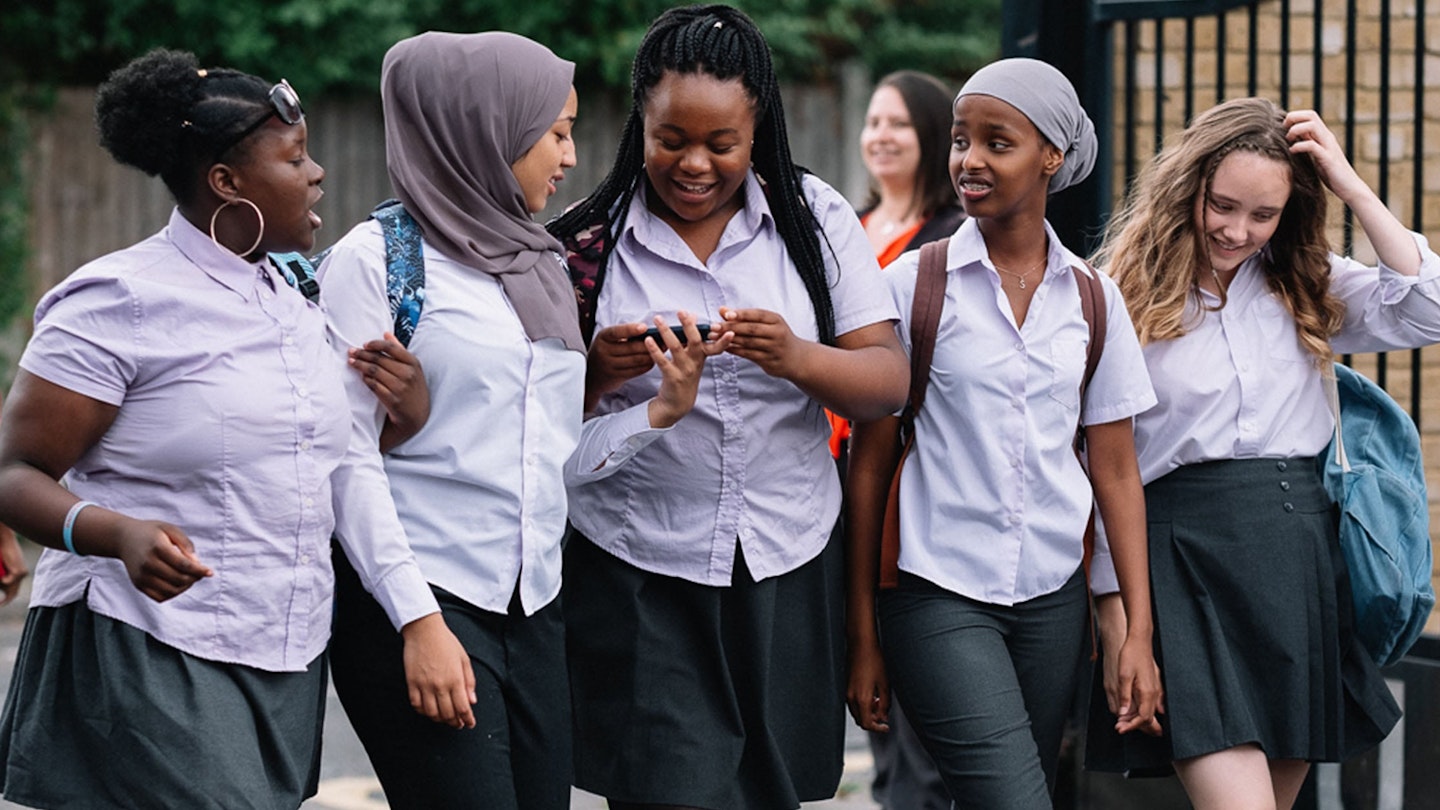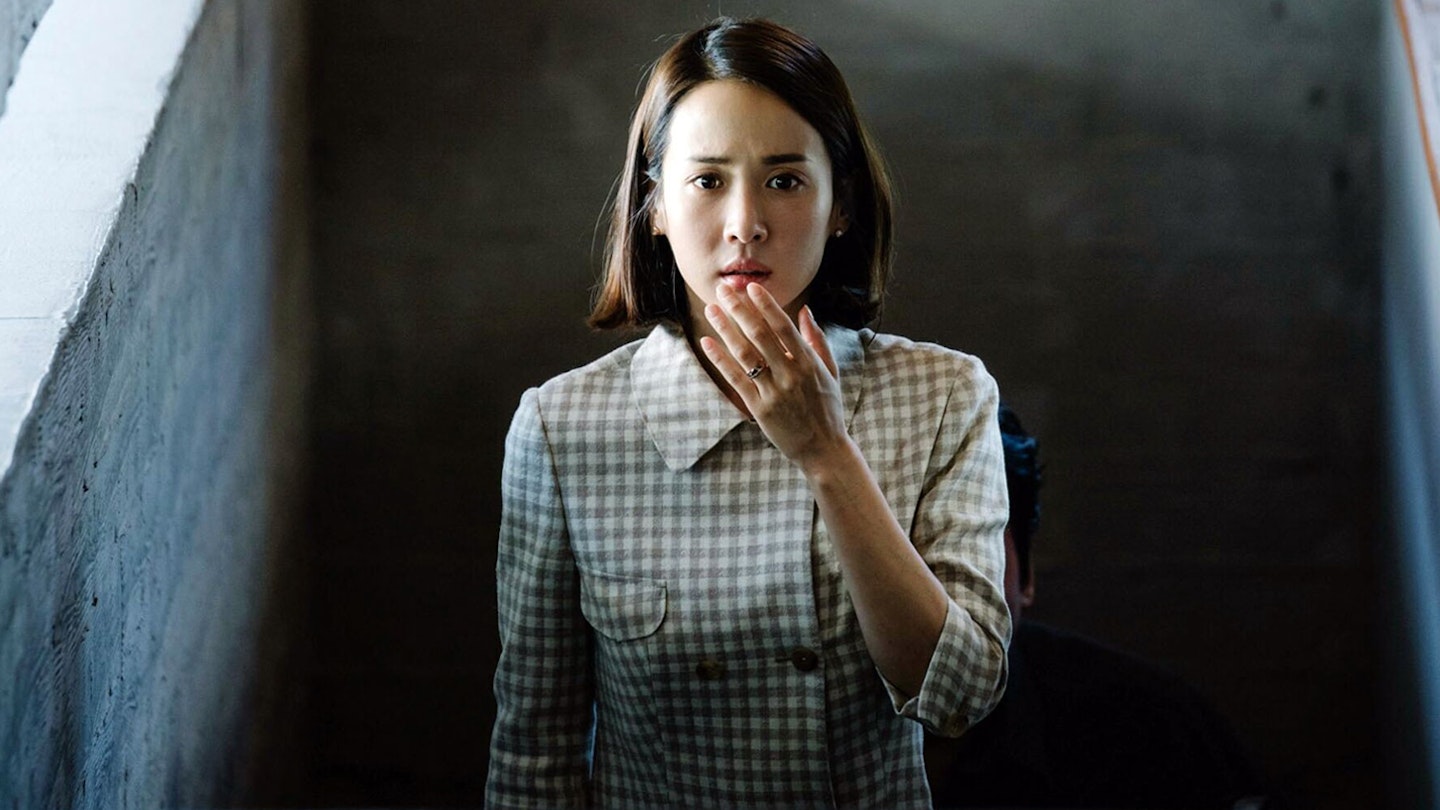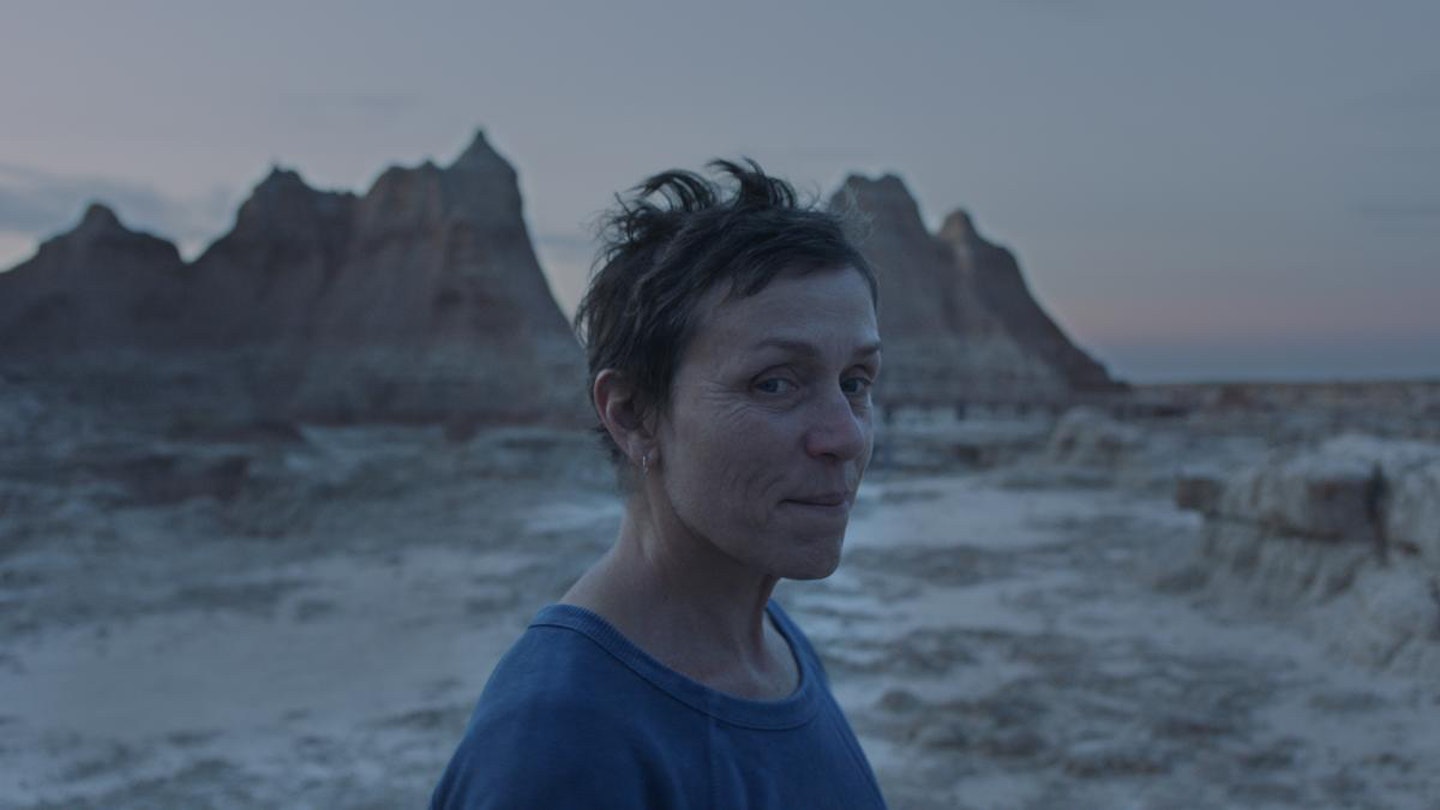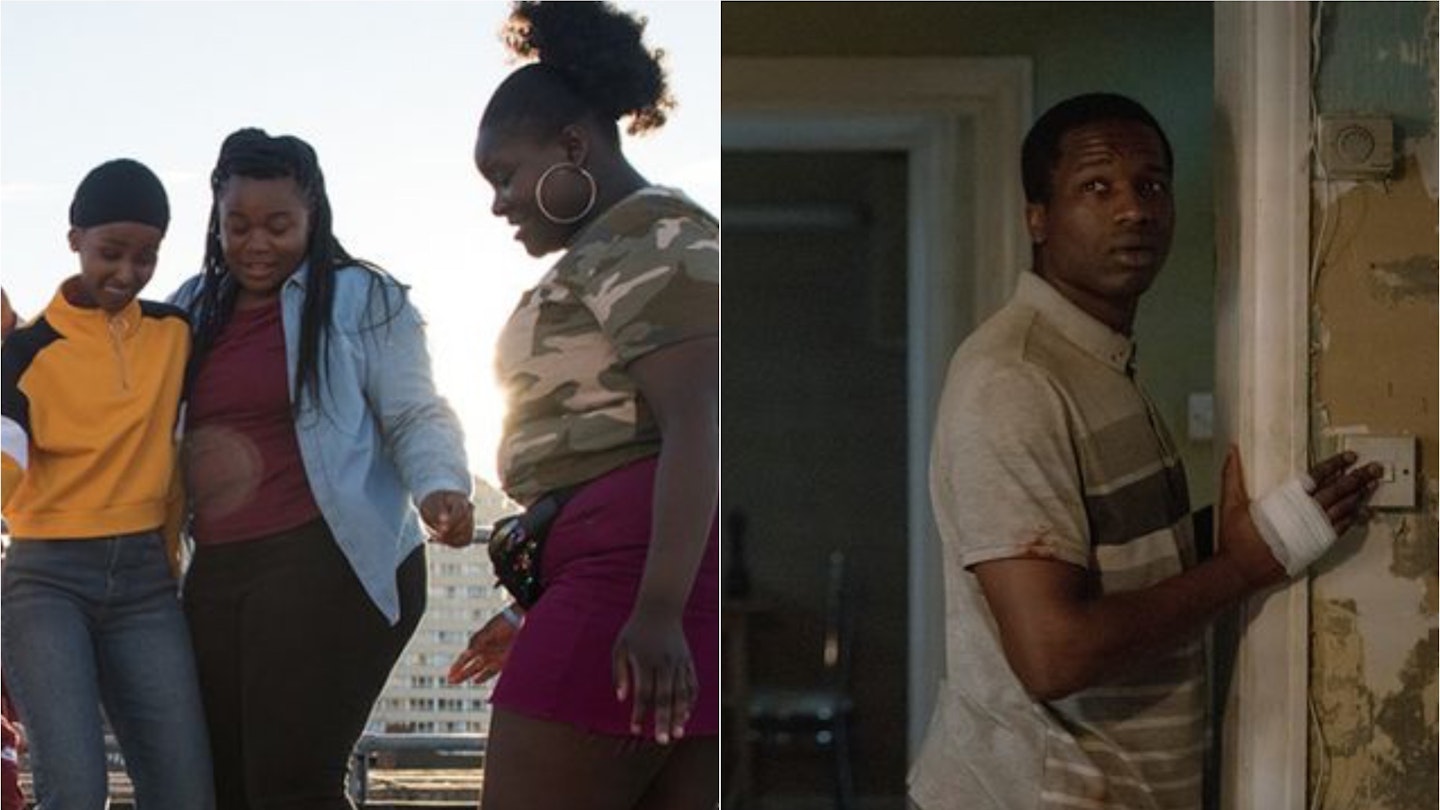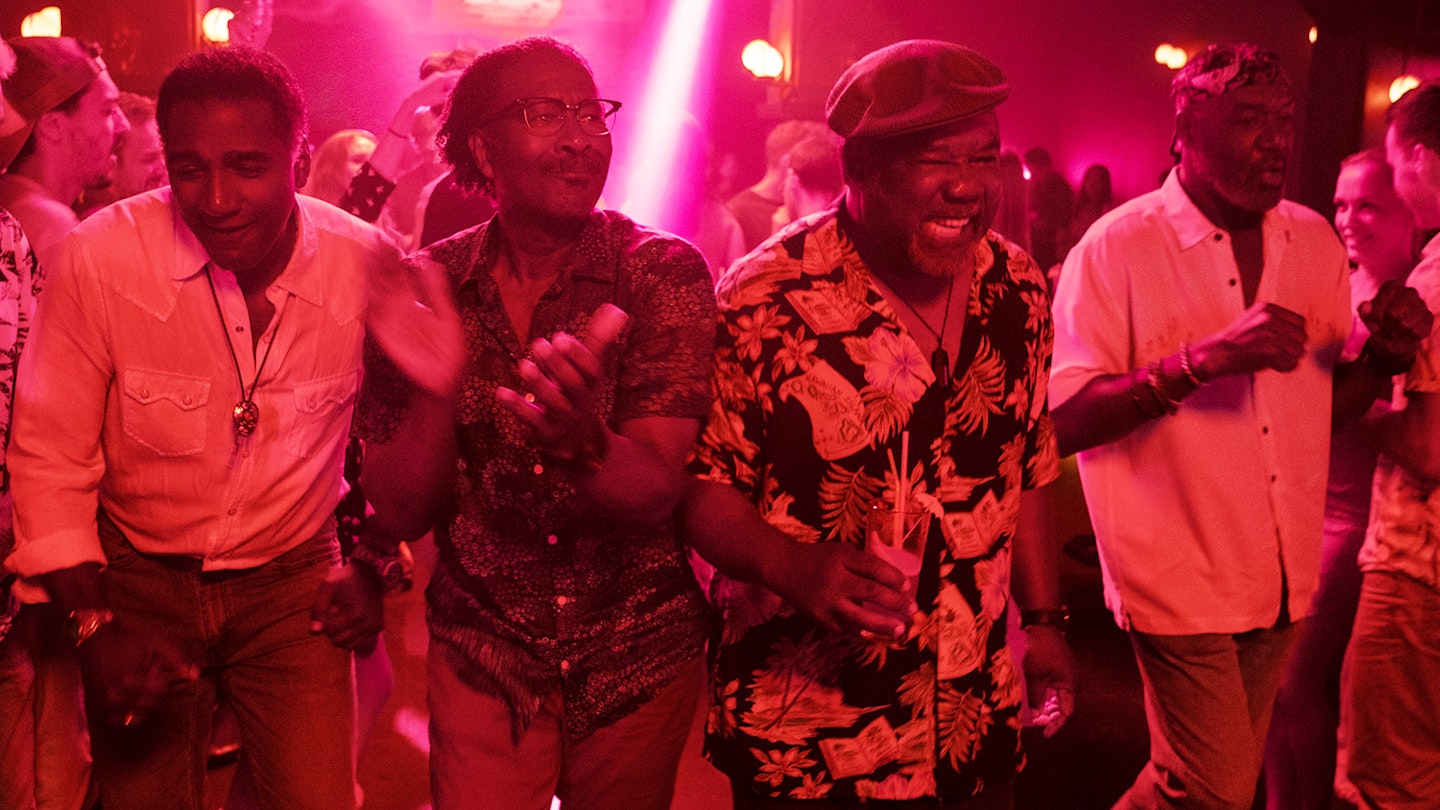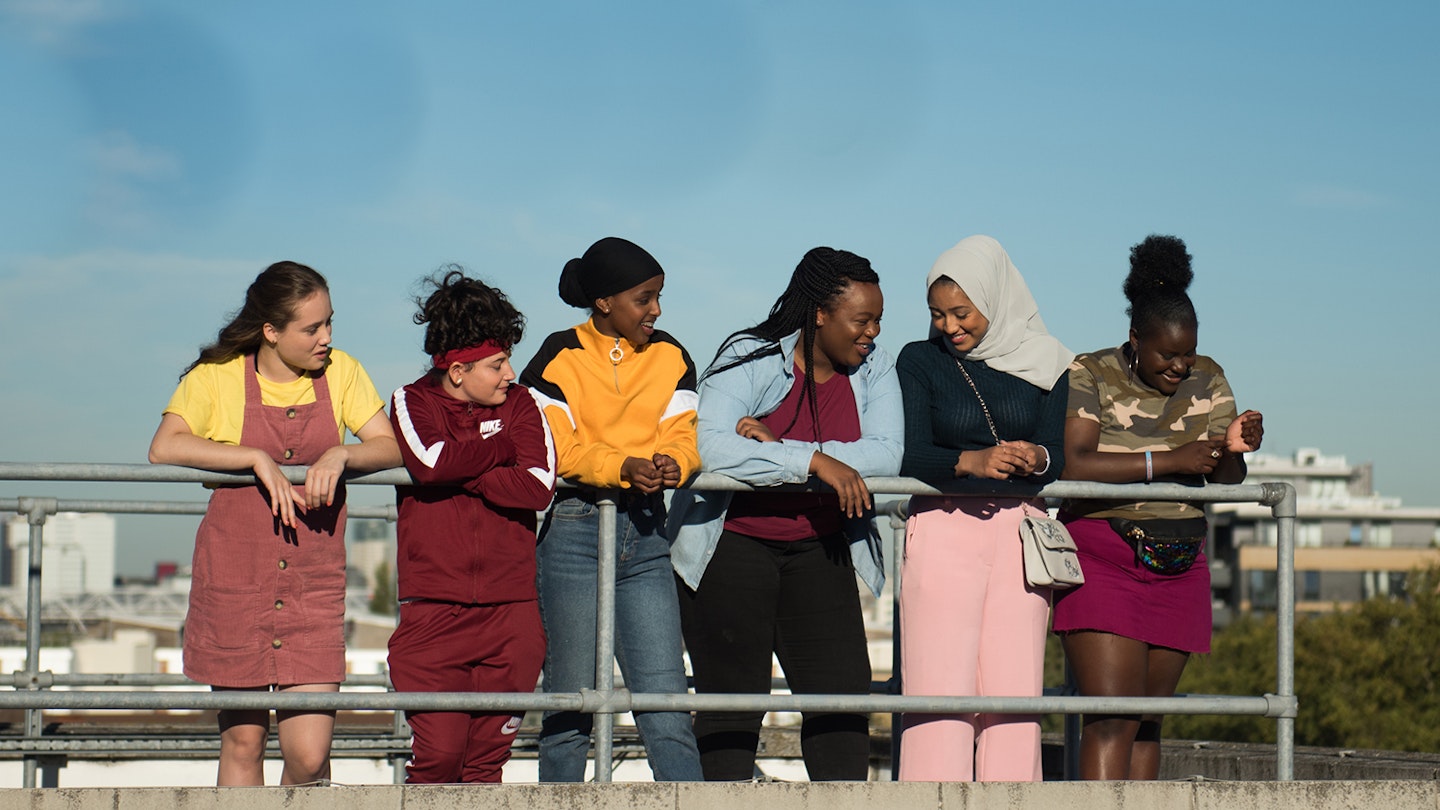Rare and joyful are the times when you stumble across a film that simply can’t be bottled. Where the filmmakers, through the act of really listening to a story and committing to telling it through the right voices, can make a film with such life-altering capabilities that it outshines the work of its more polished, prestigious peers by light years.
A film of such calibre is Rocks, a loving ode to friendship in the capital. It's scripted by prize-winning East London playwright Theresa Ikoko and Claire Wilson in collaboration with its young cast and local teenagers, and directed by Sarah Gavron. Shola (Bukky Bakray) is Rocks, a British-Nigerian aspiring make-up artist in her final year of secondary school, who earned her nickname through fighting off the bullies of her best friend Sumaya (Kosar Ali). At home, she secretly cares for her seven-year-old brother Emmanuel (D’angelou Osei Kissiedu) after her mum takes off once again, leaving the pair to fend for themselves (“Going away to clear my head!” reads the crumpled note left with a paltry food allowance). “Not everyone is cut out for motherhood,” Rocks’ grandmother — her only remaining family — says kindly over a crackly phone line from her home in Lagos. The sentiment is not shared on the other end of the call.
There’s always a rightful furrow of brow when a white filmmaker’s name is seen steering a film about kids of varying ethnicities. It worked with Céline Sciamma’s formative Parisian drama Girlhood and Joe Cornish’s South London estate sci-fi Attack The Block, but the fear of a cultural disconnect — or worse, exoticising the film’s subjects — is inevitable.
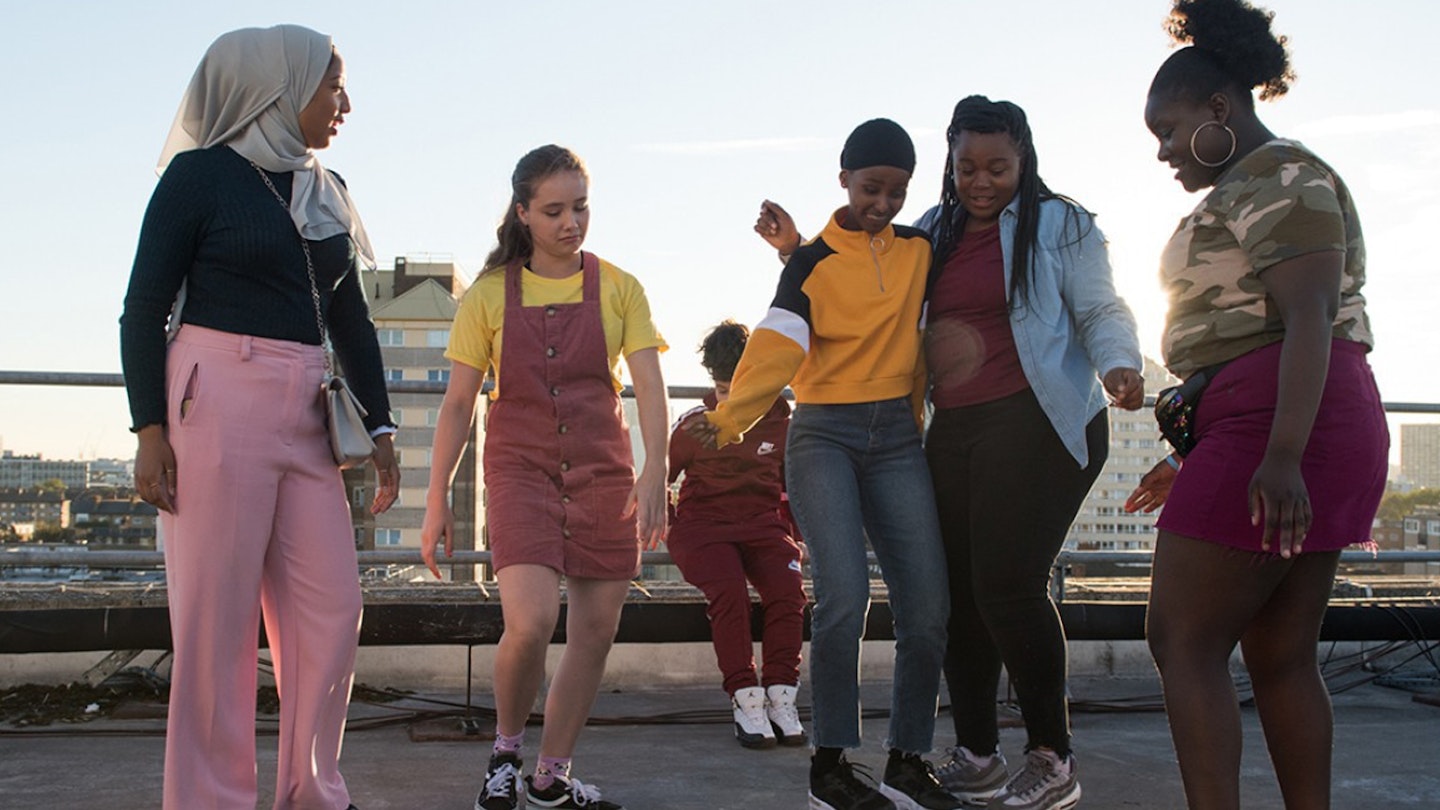
With Rocks, any doubts or worries are stamped out in the film’s opening moments, as a ripe belly laugh ripples out from the playground and through the screen. This is the kind of laugh that no seasoned actor could hope to achieve — it feels as if it’s travelled up from underground, through its vessel and out into the stratosphere. It’s unbridled, unmanaged, and comes from a place of complete ease. No-one is trying to harness this girl.
Gavron's last film, 2015's Suffragette, brought big names such as Meryl Streep and Carey Mulligan to her social-movement period drama, but failed to capture the punk spirit of its activist subjects, instead leaning into conventional genre tropes. For Rocks, she immersed herself in a creative collaboration that involved a nine-month research process, and joined Ikoko, Wilson, American Honey casting director Lucy Pardee and her predominantly female team in finding and working alongside a local ensemble of largely first-time actors.
Their collective efforts are the making of the film — unlike the feral lost boys of Andrea Arnold’s sprawling Midwestern coming-of-ager, the girls they found exude a finely tuned harmony that’s felt both in their closeness and the distance between them. At school, they slump idly across neighbouring bodies, looking after each other while braiding hair. When Rocks and Sumaya argue tentatively after the latter’s concerns for her friend pushes their boundaries too far, the fight that commences is devastating for all parties (the viewer included), such is the weight of their friendship and its ability to send their worlds crashing down.
Rocks will be remembered as one of the great British films of this time.
In addition to the central posse, D’angelou Osei Kissiedu as Emmanuel risks running off with the spotlight every time he’s on screen, his natural cheek paired with an acclimatised stoicism that belies his younger years, and makes you wish that you could give him the world. Rocks’ occasionally reckless determination to keep him close is never questioned, such is the magnetism between the siblings.
The girls' input in the script means that by the time we join the girls in the film, the lives that they are portraying feel truly lived in — it’s only when the script becomes preoccupied with establishing the plot that the performances lessen in authenticity. The details of their friendship are intricate — if you lose a dare, the penalty is buying six wings and chips for the rest of the group — but never romanticised. Poor judgements are made, frustrations are aired, but this never seems to deter this fiercely loyal, motivated and vastly funny unit.
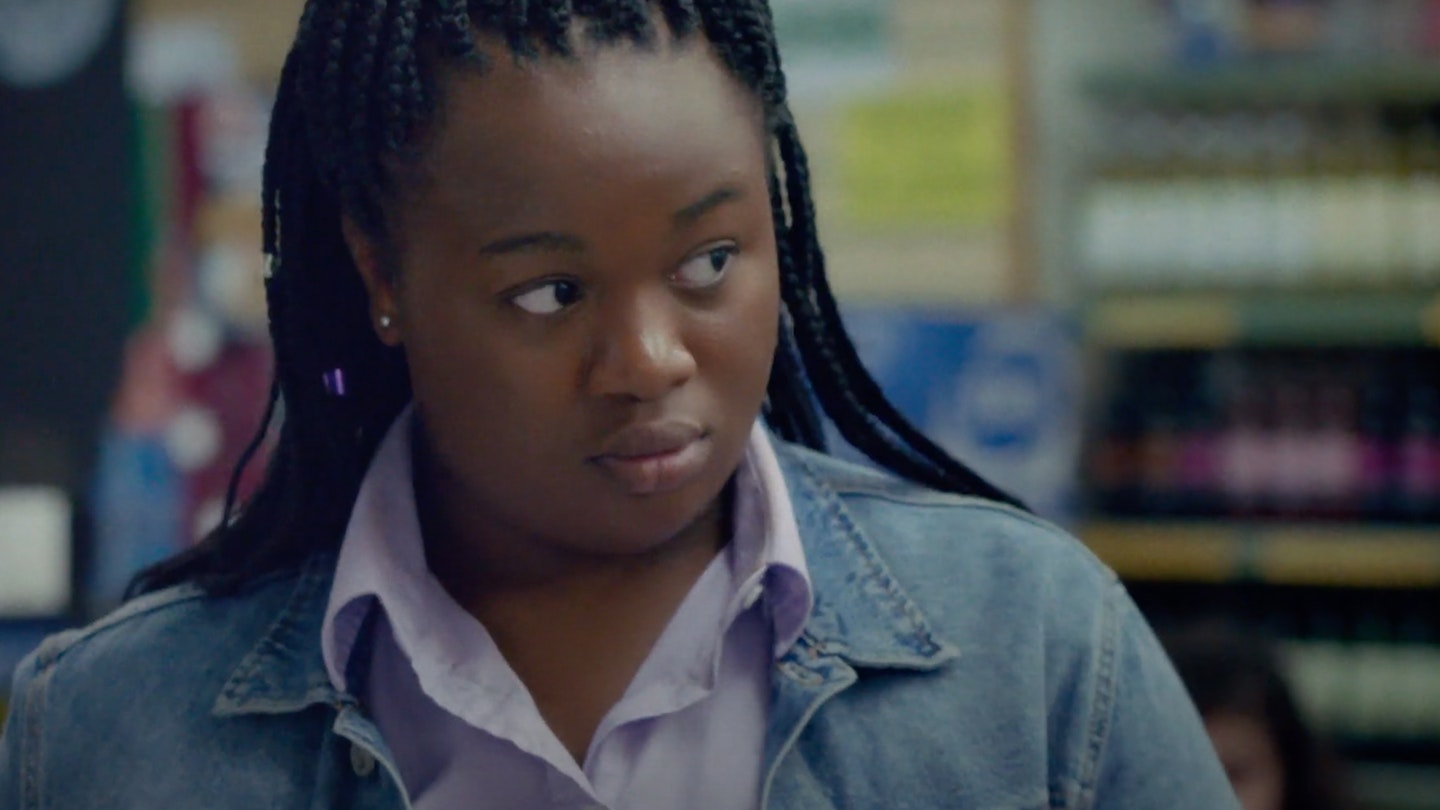
When watching any film that focuses so fervently on a younger generation in a societal context, you inevitably assess the world that they are going to grow up into. So contagious is the spirit of these young women (the film is peppered with rousing reminders, from a savagely orchestrated food fight to a rough but rapturous dance lesson), that you truly believe that they could change the future. “I’m going to be the next Picasso,” a girl says jovially while holding up her artistic efforts in class, and you can’t help but believe her.
The world that Gavron builds for Rocks to populate is condensed mostly to Hackney, a single borough in London, but one that is both still rich in the cultural heritage of its longstanding communities yet painfully vulnerable to gentrification. In Shoreditch — an area once creative, now housing the overspill from the neighbouring financial district — a pristine penthouse apartment “borrowed” by Rocks’ new friends is a temporary nirvana, their surroundings captured in a Snapchat-type format to emphasise its aspirational values.
Earlier in the film, a visit to Sumaya’s Somalian family flat shows London at its best, as Rocks and Emmanuel are drawn into a party, dressed up and fed with an easy hospitality and kindness more valuable than any penthouse dream.
Rocks’ journey is one with the odds stacked vastly against her, and although sympathy for her character is inevitable as events drop from bad to worse, this is through the sheer power of her performance and not via the tropes of poverty porn, which Gavron takes pains to avoid. Through this dedicated and respectful collaboration, Gavron and the girls have captured what it is truly like to live in London at this very point, with all of its flaws, opportunities, and its resounding unity. In doing so it’s making history itself, and will be remembered as one of the great British films of this time.
